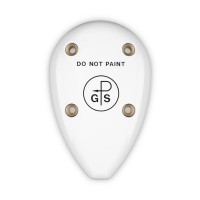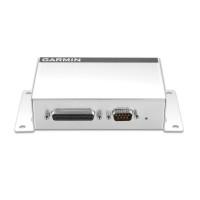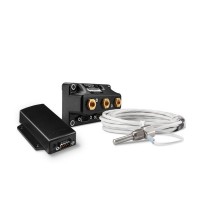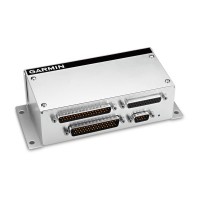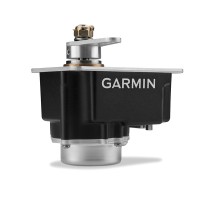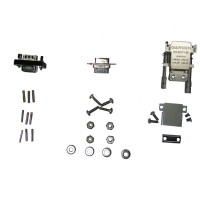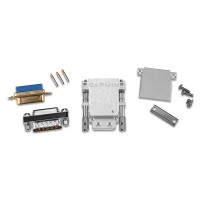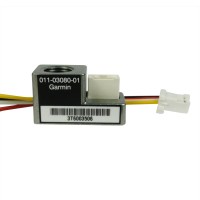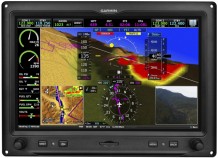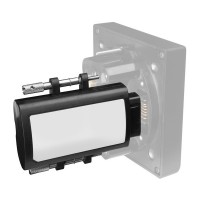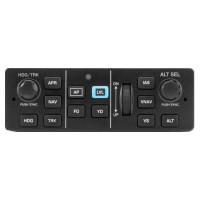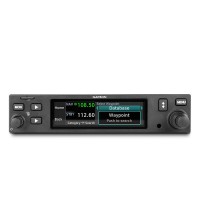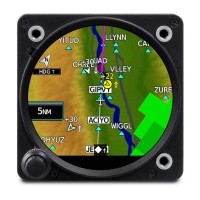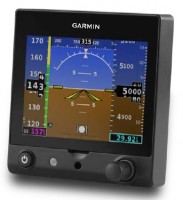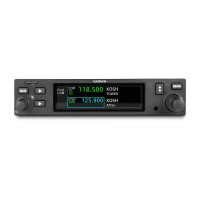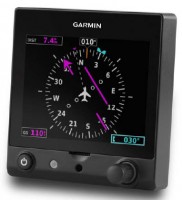Garmin GNX™ 375 GPS Navigator + ADS-B Out / In Transponder For Experimental Aircraft
Overview
|
LPV Approaches and ADS-B “In”/“Out,” Priced for Your Aircraft Slim, all-in-one touchscreen GPS navigator and ADS-B transponder for Part 23 Class I/II aircraft (weighing less than 6,000 lbs) and experimental/amateur-built aircraft Take advantage of WAAS GPS navigation with LPV approaches, which offer minimums as low as 200’ to greatly expand your operational capability Built-in 1090 MHz ES transponder meets ADS-B “Out” requirements, while dual-link ADS-B “In” receiver provides a display of traffic and subscription-free weather. Pairs with select Garmin flight displays, or integrates directly with your existing course deviation indicator (CDI) for cost-effective installation¹ Visualize your entire flight plan, including departures, arrivals, instrument approaches, holding patterns and more on a rich, dynamic global moving map Wirelessly transfer flight plans and stream weather, traffic, GPS position and backup attitude via built-in Connext® wireless technology to the Garmin Pilot™ app and more. Note: This unit may only be sold to experimental aircraft. Aircraft Make, Model, and N number will be required at the time of shipment. |
WARNING: Cancer and Reproductive Harm - www.P65Warnings.ca.gov. |
Features
Perfect TouchThe moment you power up GNX 375, you’ll see a familiar Garmin homepage on the 4.8” display, which puts the most important functions within only a few touches. Navigate to dedicated pages for the moving map, traffic, terrain, weather, nearest airports, flight plan, procedures, waypoint information, utilities and more. With shortcuts available to the flight plan and Direct-to functions on almost every page, navigation features are usually just a tap away. Use your finger to pan and zoom on any map, traffic and terrain page. Enter waypoint data with the on-screen keyboard. And touch the home button to get you back to the main page at any time.
For added control stability in flight, a shelf across the lower edge of the display serves to steady your hand in smooth and turbulent flight conditions. And if you prefer traditional controls, the concentric knobs provide yet another way to control many of the GNX 375 navigator’s functions.

Intuitive Navigation
With GNX 375, building and modifying flight plans is simple. As you enter waypoints, Garmin's FastFind feature automatically begins searching for the nearest identifier as soon as you start typing, so — in most situations — a press or 2 reveals just what you were thinking. You can also create holds, insert Victor airways and corresponding exit options, and add departures, arrivals and instrument approach procedures. Additionally, you can edit your route using the map screen; a handy "rubber band" feature lets you grab any leg of your flight plan route and move it to accommodate a deviation or ATC amendment to your flight plan.
A variety of dynamically drawn and displayed maps provide situational awareness and context to the flight plan by highlighting visual reporting points, navaids, SafeTaxi® diagrams and hazards such as obstacles, power lines and terrain. Plus, the Smart Airspace™ feature automatically highlights airspace close to your current altitude and de-emphasizes airspace away from the current altitude.

Advanced Approach to IFR
The SBAS/WAAS-certified GPS receiver can allow you to fly GPS-guided LPV glidepath instrument approaches down to as low as 200’, greatly expanding your operational capability. You can also access newer lateral performance (LP) and all area navigation (RNAV) approaches. Precise course deviation and roll steering outputs can be coupled to Garmin's GFC™ 500 and GFC 600 autopilots as well as select third-party autopilots so that IFR flight procedures such as holds, NextGen radius-to-fix (RF) legs and missed approaches may be flown automatically. In addition, the GNX 375 navigator lets you create and execute custom holding patterns over an existing waypoint or user-defined waypoint.
Plus, when operating in VFR conditions, GNX 375 can provide advisory vertical approach guidance based on a published glidepath angle or a 3-degree approach glideslope from the runway threshold, while considering terrain and obstacle clearance. With this advisory guidance, you’re able to fly more consistent, precise vertical glidepaths into a variety of airfields.

Add ADS-B “Out” and “In”
With its built-in 1090 ES transponder, GNX 375 allows you to meet ADS-B “Out” requirements with a single installation, while its dual-link ADS-B “In” receiver provides a complete picture of ADS-B traffic targets as well as subscription-free weather in the U.S. For example, the ADS-B weather link allows you to access animated NEXRAD imagery, METARs, TAFs, winds and temperatures aloft, PIREPs, NOTAMs and more.
Additionally, Garmin's patented TargetTrend™ relative motion technology offers a faster, more intuitive way to judge the direction and closure rate of intruding targets in relation to your aircraft’s position. For example, if traffic is ahead of you and traveling along the same track but at a slower rate, the motion vector would point opposite of its indicated direction of flight to show you are overtaking the traffic. Spoken audio alerts call out potential flight path conflicts (“Traffic, 10 o’clock, same altitude, 2 miles”) to get you looking in the right direction. And, at the start or end of each flight, TerminalTraffic™™ technology provides the most comprehensive picture of ADS-B equipped aircraft and ground vehicles in the airport environment. ADS-B equipped aircraft in-flight are easily distinguished from ground vehicles and taxiing aircraft, which are displayed using distinct colors and symbols. All information is presented on a simple, easy-to-understand SafeTaxi diagram with reference to runways, taxiways, hangar locations and more.

Cockpit Integration
The GNX 375 navigator interfaces with Garmin flight displays, including G3X Touch (experimental and certified), G5 (experimental and certified), G500/G600, G500 TXi/G600 TXi as well as select third-party displays¹ to provide navigation outputs. It’s also compatible with many older, composite-input based CDIs — allowing you to keep your existing CDI and have an easier, more cost-effective installation¹. Better still, GNX 375 can be interfaced with a variety of compatible cockpit displays to provide ADS-B weather and traffic information.
And for even more work-saving convenience, you can use the built-in Connext technology to stream information between GNX 375 and compatible Garmin portables and mobile devices running the Garmin Pilot or FltPlan Go apps. You can create flight plans at home and upload them at the airport. And you can stream GPS data, backup attitude information (from the built-in AHRS) as well as traffic and weather to your mobile device or Garmin portable, making them even more useful cockpit companions.
Plus, Garmin's optional Flight Stream 510 installs in the memory card slot of GNX 375 to enable Garmin's Database Concierge database transfer and management capabilities via our Connext gateway. At home, you can download selected databases onto your mobile device by using the Garmin Pilot app. Then, once you get to the airport, Flight Stream 510 will automatically establish a wireless connection to the Garmin Pilot app and upload the databases from your device to your GNX 375 in minutes.

Specifications
- TSO applicability: C88b; C112e Category 1, Level 2 els; C146e Class 3; C154c Category A1S; C157b Category 1; C165a; C166b Category A1S; C195b Category B1, B3, B5, B7, C1, C2, C3, C5, C7
- Display size: 4.8" (122.5 mm) diagonal
- Display resolution: 732 pixels (W) x 240 pixels (H)
- Unit bezel height: 2.02" (51.0 mm)
- Unit bezel width: 6.25" (159.0 mm)
- Unit depth with connectors: 10.85" (276.0 mm) (measured from face of aircraft panel to rear of connector backshells)
- Unit weight: 3.2 lbs (1.44 kg)
- Maximum altitude: 30,000 ft with optional GAE module. 35,000 ft without optional GAE module.
- Input voltage range: 9 VDC - 33 VDC
- Maximum display brightness: 260 fL
- Operating temperature range: -20° C to 55° C (-4° F to 131° F)
- Bluetooth version: 4.2
- Number of GPS channels: 15 (12 GPS and 3 GPS/WAAS/SBAS)
- LAT/LON position accuracy: <1.25 meter RMS horizontal, < 2 meter vertical, with WAAS
- Maximum velocity: 1,000 knots (above 60,000 feet)
- Position update interval: 0.2 sec (5 Hz)
- ADS-B “Out”: yes, 1090 ES
- ADS-B “In”: yes, Dual-link
In The Box
- GNX 375
- back plate
- Mounting rack
- Install kit
- Configuration module
- Data Card
Interfaces
Interface | Manufacturer | Model |
| ADS-B In Displays | Aspen | EFD 1000/500 |
| Garmin | G500/G600 | |
TXi Series | ||
G3X Touch | ||
GTN 6XX/7XX | ||
GMX 200 | ||
MX20 | ||
| Altitude Sources | ACK Tech | A-30 |
B&D | 90004-003 | |
| Bendix/King (Honeywell) | KDC 281 | |
KDC 481 | ||
| Garmin | G500/G600 | |
GAE 12 | ||
TXi Series | ||
G3X Touch | ||
Icarus Instruments | 3000 | |
Sandia | SAE 5-35 | |
| Shadin | 8800T | |
F/ADC-200 | ||
F/ADC-2000 | ||
| Trans-Cal Industries | IA-RS232-X | |
SSD120 | ||
| Autopilots | Honeywell (Bendix/King) | KAP 100/140/150, KFC 150/200/250 |
KFC 225/275/325 | ||
| Century | I/II/III/IV, 21/31/41, 2000, Triden | |
AK 1081 [1] | ||
| S-TEC | System 20/30/40/50/55/60-2/60 PSS/65 | |
System 55X | ||
ST-901 [1] | ||
| Cessna | 300B/400B/800B | |
300 IFCS/400 IFCS | ||
| Garmin | GFC 500 | |
GFC 600 | ||
| Navigation Indicators | Garmin | GI 106/106B (IFR) |
GI 102/102A (VFR) | ||
| Honeywell (Bendix/King) | KI 204/209/209A (IFR) | |
KI 203/208/208A (VFR) | ||
KI 206/209A/525A, | ||
KI 202/208A (VFR) | ||
| ARC (Cessna) | IN-386A, IN-481AC (IFR) | |
IN-385AC (VFR) | ||
Century | NSD 360A, NSD 1000 (IFR) | |
Collins | 331A-6P, PN-101, IND-351D (IFR) | |
S-TEC | ST 180 (IFR) | |
| Mid Continent | MD222-406, MD200-306, MD200-307 (IFR) | |
MD222-402, MD200-302, MD200-303 (VFR) | ||
| Narco | VOA 5/9/50M (IFR) | |
VOA 4/8 (VFR) | ||
| EFIS Displays | Aspen | EFD 1000/500 |
| Garmin | G500/G600 | |
TXi Series | ||
G5 (ADI) | ||
G3X Touch | ||
| EHSI Displays | Garmin | G5 (HSI) |
| Sandel | SN 3308 | |
SN 3500/4500 | ||
| Heading Reference Sources | Aspen | EFD 1000 |
| Garmin | GAD 42 | |
G500/G600 | ||
TXi Series | ||
G3X Touch | ||
| Sandel | SN3500 | |
SN3308 | ||
| Multifunction Displays | Garmin | GMX 200 |
MX20 |
Connext® Compatibility
Enabled with BLUETOOTH® wireless technology.
| aera® 796/795/660 | Garmin Pilot™ | FltPlan Go | |
|---|---|---|---|
| Backup Attitude | X | X | X |
| GPS Position | X | X | |
| Flight Plan Transfer | X | X | X |
| ADS-B Weather | X | X | X |
| ADS-B Traffic | X* | X* | X |
Videos
Reviews
Great service and the installation works great. I ordered with the 4 harness to simplify the installation on my experimental aircraft. Glad I did. I did have to email a question for information on how the harness was tagged. Got a quick response. Great customer support!
Garmin Gnx 375 Kit With 4Foot Exp Pigtail
Great way to get into ADS-B with some benefits. Installed in a Glastar with an A&P doing the heavy lifting. Beware the Garmin pricing- I had to buy an antenna and some additional bits and bobs. It says it is included but their line was that the experimental version did not include. I did not get through Spruce though so I dont know. Flying has been please it DOES work with ForeFlight and getting ADS-B in has absolutely worth it. Also works with the newly installed G5 though you will need the GAD29 to connect it all up. So: Great product thus far in VFR flight but I wish Garmin wouldnt make it feel like theyve got your over a barrel. Just tell me what it is going to cost instead of being sneaky and subversive. Youll make people feel much better at the end of the day if youre up front.
Everything works fine and I love the functionality in general, except built-in AHRS. I almost wish it wasnt there at all - considering wasted time in attempts to calibrate it, test it and try to make it work. Dont even count on that extra functionality.
Q&A
Please note, Aircraft Spruce ®'s personnel are not certified aircraft mechanics and can only provide general support and ideas, which should not be relied upon or implemented in lieu of consulting an A&P or other qualified technician. Aircraft Spruce ® assumes no responsibility or liability for any issue or problem which may arise from any repair, modification or other work done from this knowledge base. Any product eligibility information provided here is based on general application guides and we recommend always referring to your specific aircraft parts manual, the parts manufacturer or consulting with a qualified mechanic.
Yes, ForeFlight works with the GNX 375 in the current iterations. (They did not always work together.) You can flight plan on ForeFlight (or Garmin’s Pilot app) and transfer the flight plan to the GNX 375 via Bluetooth once in the cockpit. While in flight, it’s possible to send flight plans from the GNX 375 to the ForeFlight app, as well as to send amended flight plans from ForeFlight back to the GNX 375.
The unit does not change. It is certified, However, if you are flying a certified aircraft you will need to go to a Garmin Dealer/Installer to purchase and install this in your aircraft.
Yes, the GNX 375 can be connected to your iPad through Bluetooth to display traffic and weather to most popular navigation apps. The 375 is known to work with ForeFlight and Garmin Pilot apps.
Yes, these will provide the alerts.
The box includes the unit, back plate, mounting rack, install kit, configuration module, data card. The manual is a PDF download.
We can sell this unit for experimental aircraft installation only. For certified aircraft, you will need to contact your local Garmin installer.
Yes, it will replace those units as the GNX 375 is capable of ADS-B in and ADS-B out.
Yes, the GNX can be wired to an MFD, CDI and a G5 while connecting to an iPad via Bluetooth, but you must be aware that the unit is only compatible with select units. In order to show glideslope information from the GNX 375, you will also need the GAD 29 ARINC 429 adapter (part 11-11454).
Yes, these two units are compatible.
This requires two antennas. One for the transponder and one for the GPS. You can use the CI-105 and the GA 35 11-17965 - CI105, 11-09701 - GA35


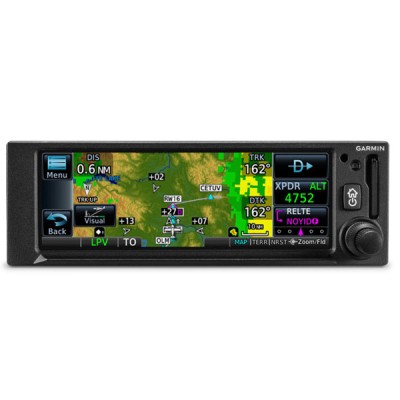
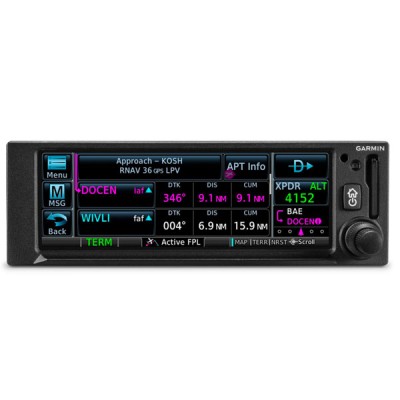
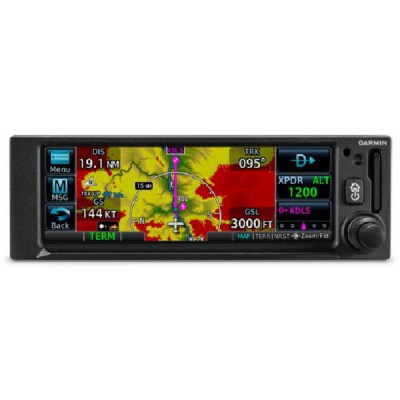
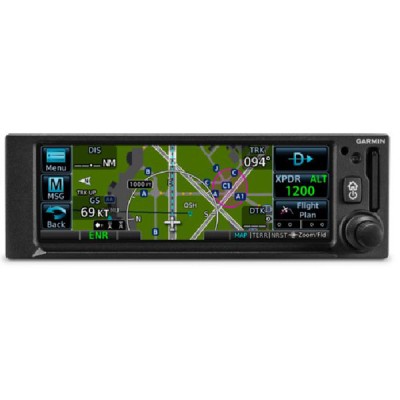
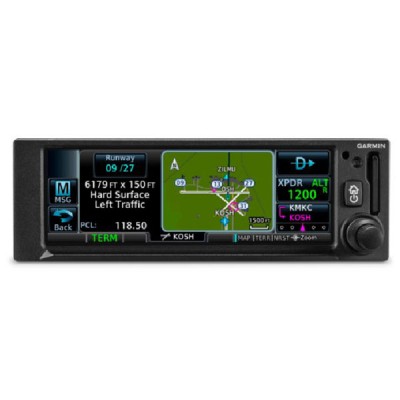





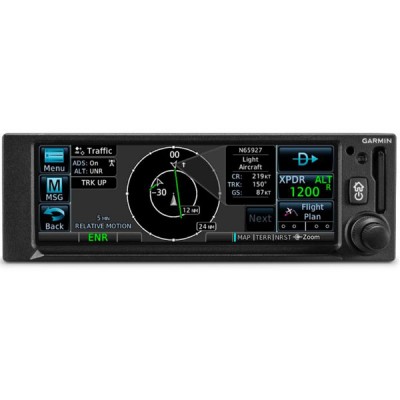
















 FREE Shipping
FREE Shipping

